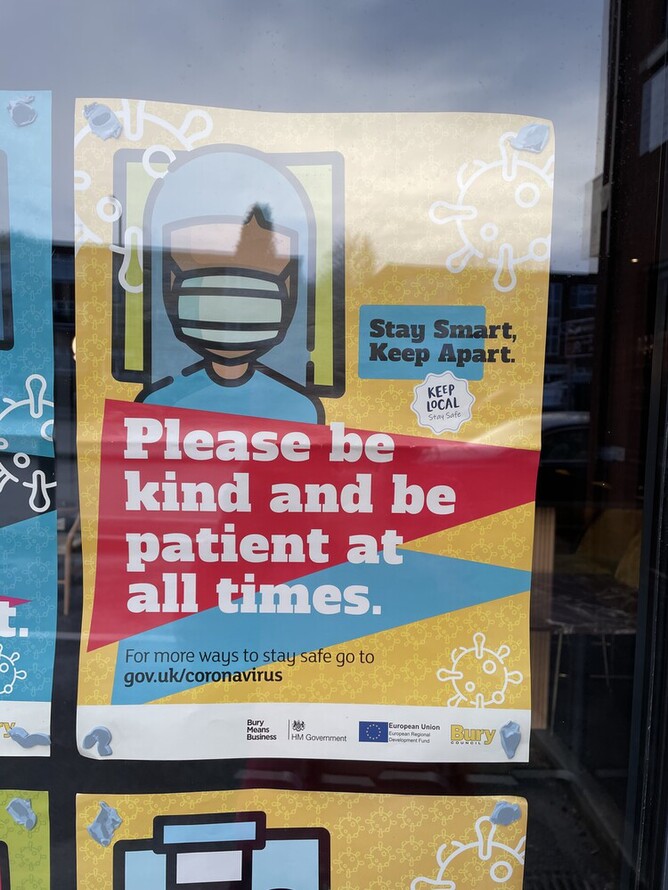The global health crisis is sharpening our understanding of leadership and what has been lacking. There is inspiration out there if we are willing to learn.
What is missing?
1. A plan
‘They’ve not planned at all and they’ve had months to plan ahead and they’ve left us in such a terrible position’.
These are the words of ICU Nurse, Ameera Sheikh, who took part in a protest at Downing Street on 15 January. She highlights one of the most important things which have been missing during this wretched pandemic: a plan.
George Monbiot outlines this ‘chilling’ omission in a Guardian article on 13 January. ‘Without clear objectives, without a plan, we are likely to remain trapped in a perpetual cycle of emergency followed by suppression, followed by relaxation, followed by emergency.’ Monbiot calls for clear criteria which need to be met to make changes.
Of course, creating a plan of this type is difficult. Leadership is difficult. But there is a need to ‘imagine the unimaginable’ and, with as much good information and advice as possible, draw a line in the sand. Nothing in such a situation will be perfect; nothing ever is. But this would give some clarity – a framework – which is so desperately needed. And if there is a dose of humility added (see below) then if and when the goal posts move, leaders can explain, apologise if required (yes, that is a thing – ask Nicola Sturgeon) and they are still far more likely to have the public’s understanding.
2. Willingness to ask for help
Dealing with an unprecedented phenomenon such as Covid-19 is an enormous challenge. But from the earliest days of the virus, there were examples of good practice internationally, including some countries who experienced the worst of SARS-2. We could have learned from those countries by asking for advice and models.
Private Eye’s M.D gives striking figures for the number of Covid deaths per head of population in countries with at least 20 million inhabitants:
Australia: 1 in 29,000
South Korea: 1 in 65,000
Taiwan: 1 in 3,400,000
UK: > 1 in 1,000
M.D points out that in the much more successful countries, there is a zero tolerance approach to new cases which sees a major incident declared if a few emerge and rapid action to isolate.
I have reflected on why we have not done this. Reluctance to ask for help is a recurring theme in the workshops and coaching I give. It is often erroneously seen as a demonstration of weakness. I wonder if our current leaders have fallen into this trap. The reality is that nothing could be more powerful than being ready to ask for help and learn from others; and there is no better way to rapidly improve.
3. Communicate with a) humour
Government communication has to be factual and unemotional right? You may think so from the national broadcasts given from Westminster. I have been struck by the success of other countries in genuinely engaging the public. How about the absurd and memorable German ‘video from the future’ where a grandchild asks what his granddad did in the 2020 crisis, followed by a farcical riff about ‘doing absolutely nothing’ at home? It is as funny as it is thought-provoking.
In Taiwan, there are 3 pillars to their pandemic response: fair, fast and fun. The leadership developed an appealing character- a cartoon dog called Zongchai, a shiba inu breed. The dog uses simple, relatable language to explain the rules e.g. ‘Outdoors keep 3 shiba inus away from each other’. Culturally it is said to work well.
When fake news was put out about toilet roll being made from the same material as masks with shortages likely risking panic buying, the government issued communication explaining the facts with an amusing meme showing the Taiwanese Premier, Tsu Tsent-chang, semi-naked stating ‘We only have one pair of buttocks’. It would be hard to think of a more effective way of making people feel they were genuinely ‘all in this together’. The meme was a huge success, rapidly spreading faster than the toilet roll conspiracy theory.
Communicate with b) empathy (if you have it)
This is a big one for our government. I have yet to see a representative express anything resembling empathy for the thousands of avoidable deaths which have occurred on their watch. A friend said today that if our leaders just started any communication with a genuine expression of regret and sadness at this appalling loss of life, it would go a long way to improving their engagement with us. But no. I question whether this is because the leaders in question feel that a display of emotion is somehow ‘not cricket’ (perhaps reflecting the very narrow cultural base from which most of them come) or whether, and this is perhaps more likely, they simply lack lived experience of severe loss, deprivation and many of the other dramatic and draining feelings which many of the population are having to deal with. One of the reasons the impressive Marcus Rashford’s communication hits home is that he speaks from experience. His messages have authenticity and he expresses empathy naturally.
In conclusion…
So, a message to our dear leaders who don’t have time to read this so here’s the summary: do have a little humility and ask others for help, do develop the best plan you can, share it, communicate like a human being, feel – and express – empathy and don’t be afraid to use appropriate humour. You may be surprised by the difference this makes.

